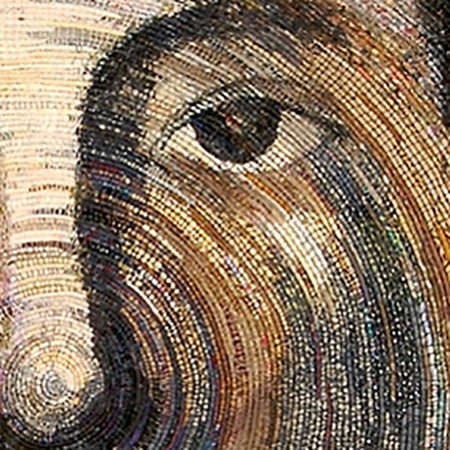Over spring break, B Street Theatre opened a new season featuring the play “Gandhi!”, a story about a middle school boy in detention who must read Gandhi’s autobiography. In each passing scene, Monhondus begins to delight in the lessons of his people’s ancestor. The play climaxes with Monhondus pleading with his book from one side of the stage and Gandhi being dragged from the opposing side to his awaiting trial. Monhondus finally exclaims, “Before you [Ghandi], I did not know who I was!” Lights out. Scene closed. Audience applause.
That is a how a nation perishes—in the darkness before the applause of an audience who has divinized class, cultural and political identity. But no fate is more certain than when the church corroborates with society to undermine our identity in Christ, as bearers of the Imago Dei.
CLASS, CULTURE, AND POLITICAL IDENTITY: WE’VE GOT IT UPSIDE DOWN.
In modern socio-political debates, we have cashed-out our class, culture and political anthropologies as grounds for personal identity. People are identified by their race, gender and class. Instead of looking to Christ as our ultimate source of identity, we have allowed these social categories to become our essential identity. It is unthinkable, in modern socio-political debate, to argue that someone’s class, culture and political anthropologies are not essential to understanding them as human beings.
The effects are most poignant in heated socio-political debates. Can a man and a woman equally contribute to the discussion of the unborn? Can the rich and the poor debate economic plight? Is it possible for different races to reconcile racial differences? If we accept the modern social categories and their role in personal identity, the answer is no. A man and a woman, the rich and the poor, the African and the European, are not merely people with different secondary identities. They possess different fundamental identities—they are different kinds of people. There is no common ground between people because there is no common ground between their fundamental identities.
THE IMAGO DEI: THE CHURCH GETTING IT RIGHT
In contrast to these anthropologies, Christ turns the entire paradigm on its head. Christ, an ethnic Jew, was not received as a hero to his own class, culture or political identity. He was instead rejected, beaten and killed—charged with blasphemy and usurpation. The chasm between socio-political identities and Christ’s must be seriously considered. In today’s debate, the church must find its essential identity. We must ask, “Who are we as bearers of the Imago Dei, baptized in Christ?”
As St. Paul discusses in Galatians 3:26-29, Christians baptized in Christ are neither Jew nor Gentile, neither slave nor free, neither male nor female but all children of God.
Instead of allowing modern social categories to form our fundamental identity, we should deny them and the restrictions they place on us.
G.K. Chesterton said it best:
“I did, like all other solemn little boys, try to be in advance of the age. Like them I tried to be some ten minutes in advance of the truth. And I found that I was eighteen hundred years behind it.”
History is already lined with the blood of civilizations who divinized class, culture and political identities. It is in church history that we find something new—class, culture and political identities are no longer fundamental to our personal identity.
To move forward in our understanding of personal identity we must go back to the root of our identity. We must remember that identity will never be properly grounded until the church can stand together before the audience of the world and exclaim, “I did not know who I was until I knew Christ and him crucified.”








